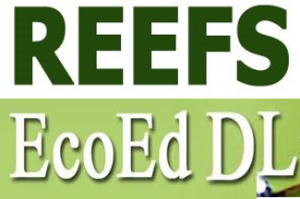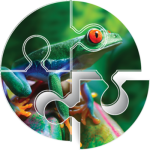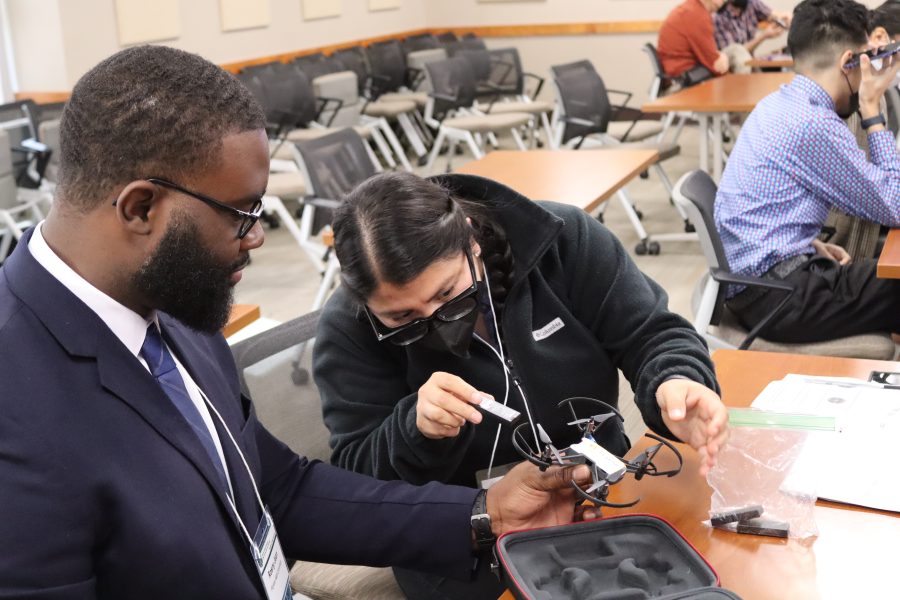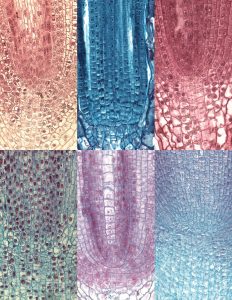Ecology Education
ESA offers a host of resources for undergraduate faculty teaching ecology in multiple settings. Currently, grant funds are available to support development of teaching resources that align with the Four Dimensional Ecology Education (4DEE) framework and travel to conferences to disseminate resources. We also invite college educators to share their teaching ideas in the EcoEd Digital Library.
Transforming Ecology Education to 4D (TEE)
Transforming Ecology Education to 4D (TEE) is a Research Coordination Network (RCN) for undergraduate biology education funded by the National Science Foundation which seeks to create a new network of faculty and academic program administrators with leadership by the Ecological Society of America (ESA).
For a current list of TEE project activities including how to participate in an upcoming Faculty Mentoring Network (Stipend included), 4DEE Showcases, and more, visit here.
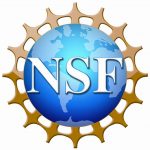
Funding support comes from the National Science Foundation.
Learn More
Learn more about the conference organized collaboratively by the Ecological Society of America, the Botanical Society of America, and the Society for the Study of Evolution.
Four-Dimensional Ecology Education Framework (4DEE)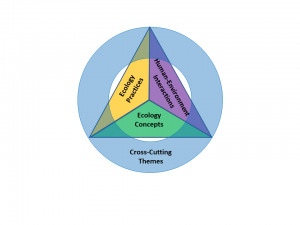
On November 14, 2018, the Governing Board of the Ecological Society of America voted unanimously to endorse the 4DEE framework. The 4DEE subcommittee of the Committee on Education is busy working on developing teaching activities, hosting sessions at ESA AM, Water Cooler Chats, and beyond. Learn more.
ESA Water Cooler Chats

Click here to see past and upcoming topics.
Meet our ESA Education Scholars who have participated in the previous Faculty Mentoring Networks.
And find out more about how they work.
Undergraduate Teaching Resources
 Search, browse, and contribute ecology education resources. Includes photographs, activities, figures, TIEE materials, and Issues in Ecology. The EcoEdDL is a portal of the LifeDiscoveryEd Digital Library, jointly supported by ESA and three partner societies: Botanical Society of America, Society for the Study of Evolution and Society for Economic Botany.
Search, browse, and contribute ecology education resources. Includes photographs, activities, figures, TIEE materials, and Issues in Ecology. The EcoEdDL is a portal of the LifeDiscoveryEd Digital Library, jointly supported by ESA and three partner societies: Botanical Society of America, Society for the Study of Evolution and Society for Economic Botany.
Teaching Issues and Experiments in Ecology (TIEE)
ESA’s journal for innovative lecture and lab activities to improve teaching and student learning. Submissions to TIEE are welcome.
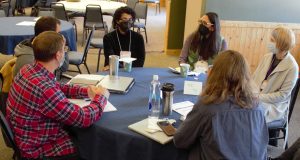 Ecology Curricular Frameworks
Ecology Curricular Frameworks
Other existing frameworks:
Ecological Core Concepts in EcoEd Digital Library
Ecology Learning Framework for CourseSource articles
CourseSource is an open-access journal of peer-reviewed teaching resources for college biological science courses. A key feature of CourseSource is the alignment of our articles with learning goals and objectives that were developed by the associated professional societies.
Faculty Development Opportunities
Resources for Ecology Education – Fair & Share (REEFS) at ESA Annual Meetings, co-organized with the ESA Education Section
Life Discovery – Doing Science Education Conference (LDC)
Future of Environmental Decisions/Scaling Up
Workshops, webinars, and faculty mentoring networks to support:
- data-intensive approaches to ecology education for faculty
- use of geospatial and long-term temporal data in environmental decision-making by the next generation of scientists
ESA-QUBES Faculty Mentoring Networks
K-12 Resources and Opportunities
PlantingScience is a learning and research resource, bringing together students from grades 6-12, plant scientists, and teachers from across the nation. Students engage in hands-on plant investigations, working with peers and scientist mentors to build collaborations and to improve their understanding of science. Student groups are mentored by scientists online as they complete an inquiry-based curriculum in their classroom. Managed by the Botanical Society of America. ESA is a Scientific Society partner.
Each year, ESA’s Education Section sponsors the Master Plant Science Team of graduate students. Applications open around June each year.
formerly Education and Human Resources Committee (EHRC)A venue for subscribers to discuss emerging issues in ecology, environmental science, and science education. Members can also share announcements and updates on ecology education programs.
ESA Education Section
The Education Section currently has a membership of around 400 ecologists, educators, managers, and administrators actively engaged in undergraduate, graduate, K-12, and teacher education, as well as community and public outreach programs and scholarly research in ecology education.
Other Initiatives
Ecology in the Pre-Medical Curriculum
Where is ecology in the proposed core competencies in pre-medical education and assessment? ESA’s Education and Human Resources Committee (now Committee on Education and Diversity) organized a response to the changes.
